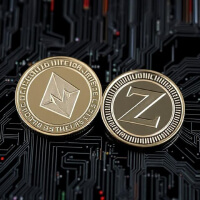Cryptocurrencies have altered finance forever and have come forward with an assortment of tokens for many applications. The most famous ones are Bitcoin and Etherum, yet there are other types of cryptocurrencies, all with different purposes in the digital economy. This book will go into those types most commonly encountered: Utility tokens, Transactional tokens, Governance tokens, Security tokens, and more. The knowledge of such categorization would surely help investors, developers, and crypto enthusiasts to navigate the vast ecosystem of digital assets.
Utility Tokens

Utility tokens are the most commonly recognized type of cryptocurrency. As the name implies, utility tokens are meant to provide a specific utility to an ecosystem or a platform. They are not supposed to be investments, nor do they usually provide any form of ownership in a company. The tokens merely enable access to a service or product within a blockchain project.
Ether (ETH), Ethereum's native token, is used to pay for transaction fees and computational services on the Ethereum network. On a similar note, Filecoin (FIL) and Chainlink (LINK) tokens enable users to pay for decentralized storage and oracle services, respectively.
Use Cases
- Payment of transaction fees: Many blockchain platforms use utility tokens as a means of paying for transaction fees or to compensate users for executing smart contracts. For instance, Ethereum uses utility tokens known as ETH to charge gas fees for transactions.
- Access to Services: Utility tokens can be used to get around or permission to use a particular feature on some platform, like staking on a DeFi platform or accessing a DApp.
- Reward Systems: Utility tokens are used by some projects to reward users for specific actions, which could be holding tokens or voting in governance decisions.
Transactional Tokens

Transactional tokens are meant and are primarily used as mediums of exchange just like currencies. The tokens are there to facilitate transactions between the two sides. Some of the most prominent transactional tokens are Bitcoin (BTC), Litecoin (LTC), and Bitcoin Cash (BCH).
The transactional tokens are different from utility tokens because these are not tied to any specific platform or service, rather, their de facto consideration is just to serve as a store of value or for wealth transfer purpose. Hence, these tokens attract several uses in the field of international remittances, retail payments, online transactions, and more.
Use Cases
- Peer-to-Peer Payments: Just like fiat money, transactional tokens are used for sending and receiving payments between individuals. For example, Bitcoin allows users to send money across borders without intermediaries or fees imposed by traditional banks.
- E-commerce: Some e-commerce sites accept Bitcoin and other cryptocurrencies in payment for goods and services, so users don't have to rely on credit cards or PayPal.
- Cross-border Transfers: Transactional tokens serve as a great alternative to the traditional cross-border transfers where high conversion fees and long processing times are a huge deterrence.
Governance Tokens
Governance tokens are instrumental within DAOs and decentralized platforms. They are used by holders to participate in decisions regarding a project's future. Holders can vote on proposals including protocol upgrades or changes to funding.
A governance token would be MKR token issued by MakerDAO: Holding MKR allows users to vote on issues concerning the system, such as changing the collateralization ratio, or other system-level governance questions.
Use Cases
- Voting Rights: Holding governance tokens obliges the holder to participate in voting about matters that concern the platform. The more tokens a user holds, the more influence they have in the governance structure.
- Proposal Creation: Certain projects allow token holders to propose changes to the protocol or platform themselves, giving them a direct say in the development process.
- Protocol Upgrades: In the conception of DeFi projects, holders of governance tokens will be given the ability to vote upon technical improvements, such as an update to the source of smart contracts or modifications to the consensus mechanism.
Security Tokens

represent ownership in any asset, usually a company or investment vehicle, and are therefore regulated like traditional securities. Hence, most of these tokens are traded during Security Token Offerings (STOs), which are regulated fundraising events similar to IPOs in the traditional finance world.
In contrast, a utility token's primary purpose is to enable the holder to consume a service or use a product. A security token provides a claim to some real-world asset or entity. They may be used either for equity, debt, or any other real-life asset such as real estate.
Use Cases
- Equity Ownership: Security tokens can represent shares in a company giving holders ownership that may pay out dividends or offer voting rights.
- Fractional Ownership: Certain projects use security tokens to facilitate fractional ownership of high-value properties such as real estate or art, thereby providing more investors with access to these assets.
- Tokenized Bonds: Security tokens may represent debt obligations, like bonds, which provide periodic interest payments to the holders while having a fixed maturity.
Stablecoins
Stablecoins are a type of cryptocurrency that aims to reduce price volatility while attempting to maintain their value relative to some stable asset, such as a fiat currency (e.g., USD) or a commodity like gold. The most popular examples include Tether (USDT), USD Coin (USDC), and Dai (DAI).
The aim of stablecoins is to retain the benefits that cryptocurrencies provide, such as very fast and low transaction cost operations, while getting rid of the price fluctuations that normally accompany coins like Bitcoin.
Use Cases
- Price Stability: In times of high volatility in the broader crypto market, stablecoins act as a store of value for investors and hence can be considered the digital version of cash.
- DeFi Applications: Stablecoins find their application predominantly in decentralized finance lending, borrowing, and staking, where the relative stability of assets is imperative.
- Cross-Border Payments: Stablecoins, when pegged to stable currencies like the US dollar, are able to facilitate low-cost cross-border payments, free from concerns pertaining to fluctuations in exchange rates.
Privacy Coins

Privacy coins, as the name implies, are meant to furnish enhanced privacy and anonymity to the user. Such coins utilize advanced cryptographic techniques, e.g., Ring Signatures, Zero-Knowledge Proofs, etc., to obfuscate the identity and/or the transaction amount of a user. The prominent examples in this category are Monero (XMR) and Zcash (ZEC).
Use Cases
- Greater Anonymity: Privacy coins give the user the chance to make a transaction without sharing any personal information-anonymity is of utmost importance to some.
- Confidential Business Transactions: Privacy coins are also useful in scenarios where businesses want to conduct transactions or internal operations confidentially from a financial standpoint.
Conclusion
Since then, the world of cryptocurrencies has evolved past Bitcoin and Ethereum. Nowadays, an entire universe has come into being in which diverse cryptocurrencies find different roles-transactional tokens to make payments and governance tokens to participate in decentralized decision-making. Whatever route you take-investing, developing, or simple curiosity-all fatefully interdepend on knowing the distinctions between the main types of cryptocurrencies.
Read More
$KAS solved the blockchain trilemma
— Sukie (@bySukie) July 27, 2025
Proof of Work, Nakamoto consensus, decentralized, secure & scalable.
Im bullish on Kaspa. 💚 pic.twitter.com/5BxsdHTz9w
Bitcoin has reached gold parity. 1 Kg of Gold Now Costs Same as 1 BTC. 🚀#Bitcoin #crypto #blockchain #cilionaire #cryptocurrency #crypto #cryptocurrencies #cryptotrading #cryptonews #cryptoming pic.twitter.com/mfHDne2j9z
— Mohini Of Investing (@MohiniWealth) July 28, 2025